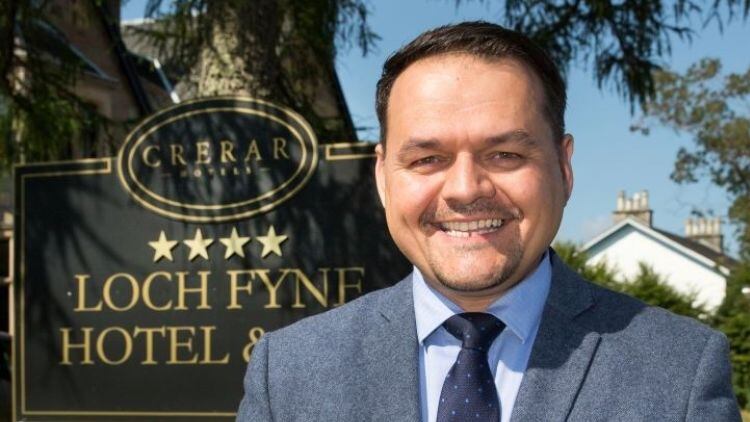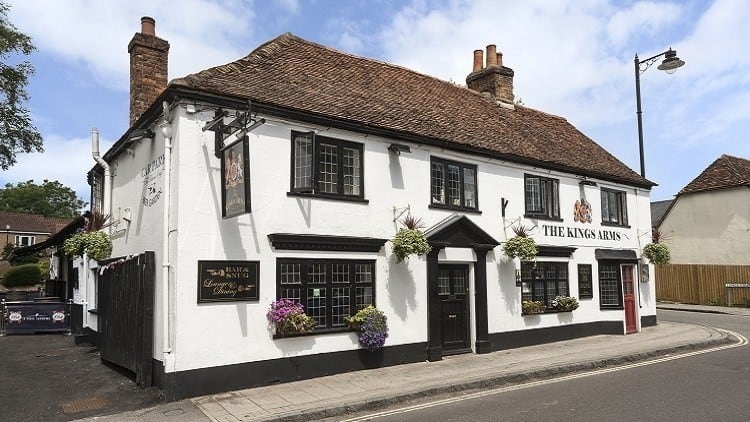Wayne-Wills took over as chairman from Loch Melfort Hotel owner Calum Ross in June. He has more than 25 years of senior management experience in the hotel and tourism industry and now works as Crerar Hotels chief executive.
In all his time in hospitality, Wayne-Wills said there has never been a more pivotal or critical time for the industry. He believed the sector needed a lot more recognition, both in Holyrood and Westminster parliament.
The biggest issue facing the sector, according to Wayne-Wills, was a chronic staff shortage which he believed to be a result of Brexit and a poorly thought-out immigration policy.
“We’ve increased rates of pay, we've increased training, we've increased apprenticeships and there's still not enough people to do the job,” he commented.
He said the industry could look to recruit people who had retired for second careers. Flexible working weeks were important to this generation, said Wayne-Wills, who also offered long-term service awards and a ‘refer a friend’ programme, where staff could win money if they recommended a new recruit.
Discounts across Crerar Hotels’ spas, hotels and restaurants were also offered for staff as well as their friends and families.
“You need your team to be your greatest ambassadors,” said Wayne-Wills. “If they travel, they learn more about the other hotels and the destinations of the hotels, which means back at their base hotel, they can talk more confidently about the whole the whole portfolio and what they experienced as a guest.”
He advised food and drink business managers to give colleagues discounts on food and drink, as this meant they experienced the site when they weren’t working and brought family and friends with them. Pubcos could provide discounts across sites.
Crerar Hotels also offered benefits including paying for staff driving lessons and allowing colleagues to bring dogs to work. The company also ran a pet bereavement day and gave paid days off for special occasions such as a child’s first day at school, sport’s day and birthdays.
“We all recognise and understand where we've got great colleagues who are committed to our guests,” he said. “In every level pubs, restaurants, cafes and hotels are providing great service connected to the industry and then we're paying good wages for those people.”
Feeling supported
He continued: “Everyone I know works in this industry. Everyone is working so hard and so creatively to try and meet these challenges, but we need positive and decisive action from our Governments. We need to feel like we're supported, which I don't think we do at this moment in time.”
He felt there had been a lack of understanding from politicians about the issues facing the sector in the pandemic. On top of facing a recruitment crisis, he said the industry was also dealing with a cost-of-doing-business crisis as well as skyrocketing energy and insurance prices and further cost pressures.
He continued: “If it does not become economical for people to do business, we're going to lose so many small and medium enterprises, which are the absolute backbone of the industry."
The Scottish Government needed to be clear about how it planned to spend its unspent Covid support business money of £2.5bn, according to Wayne-Wills.
Westminster could help the sector by slashing the VAT rate to 12.5%, which at 20%, was “unsustainable” for businesses.
He believed the sector needed immediate, further support in terms of business rates to maintain this service and cope with cost pressures.
He also wanted the cost of business to be fair and equitable with other parts of Europe, where it was far cheaper to operate a hospitality business than in the UK.
“We need action immediately, otherwise we're going to lose businesses,” he added.
Risk of closure
“Many of these businesses including pubs, cafes and restaurants that are the heart of the local community, because they are the places where people gather and where people get their first jobs. That's a real shame.”
Wayne-Wills said a particular challenge facing Scotland was a lack of housing and transport infrastructure. Crerar Hotels had invested in affordable places for people to live.
He said: “In many cases there's just not housing available. We know that because we've had to invest significantly in buying houses and renovating houses.
“So, we're not only trying to provide great employment, but we're actually trying to find places for people to live as well.
For instance, at its Glencoe Inn, Crerar hotels had bought a £350,000 Bed and Breakfast in the next village to accommodate colleagues who worked there, as well as a mini-bus to transport staff.
He also believed a lot of the Government’s immigration policy has been centred around the south east of England, especially London.
“The sector is struggling to operate without foreign staff,” he said. “We simply do not have enough people in in Scotland that wants to work without immigration. Post-Brexit coincided with lockdown, so many people returned home.”




